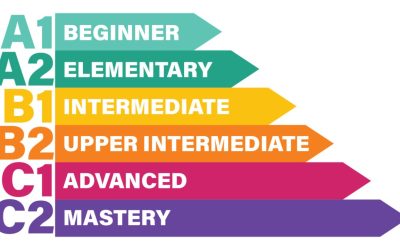What Do I Take with Me When I Learn English?
Learning a language goes far beyond mastering words and grammar rules. It involves acquiring tools and skills that impact other areas of our lives.
- Development of Personal Strategies: Learning English helps cultivate patience, resilience to frustration, and a deeper understanding of our strengths and weaknesses. These skills are applicable in many areas, from professional to personal settings.
- Awareness of My Limitations: Recognizing our limitations allows us to set realistic expectations and avoid frustrations. This means creating achievable goals and pursuing them in enjoyable ways. For instance, instead of aiming to speak fluently in six months, focus on learning useful expressions for your daily life or improving pronunciation in specific topics.
- Clear and Realistic Goals: Short-term objectives, such as learning a new set of vocabulary each week or understanding a simple conversation in English, are the first steps toward greater achievements.
Why Is It So Important to Take Ownership of the Learning Process?
Being the protagonist of your learning is key to staying motivated and making consistent progress. When we take control, we become responsible for our decisions and efforts, helping us stay focused on results.
Benefits of Being the Protagonist:
- Greater Awareness: Understanding that the learning process is personal allows us to channel our energy into a goal that directly benefits our growth.
- Responsibility: Being mindful of your progress means celebrating achievements and identifying areas for improvement without relying entirely on an instructor or program.
- Sustained Motivation: When you recognize that every step you take is your own effort, the satisfaction is greater, and it’s easier to maintain motivation.
How Can I Self-Manage While Improving My English?
Self-management is essential to complement any support you receive in your learning process. Nowadays, there are many accessible tools you can leverage:
Resources for Self-Management:
- Educational Apps: Download apps like Duolingo, which offer interactive and fun exercises.
- Online Exercises: Look for platforms that allow you to practice and correct mistakes in real-time.
- Educational Videos: Explore YouTube channels that cover specific topics in grammar, vocabulary, or pronunciation.
- Content on Social Media: Follow Instagram or TikTok accounts that share quick and practical explanations of idiomatic expressions or grammar.
- Conversations with Artificial Intelligence: Use tools like ChatGPT to practice writing or simulate dialogues in English.
- Series and Movies: Gradually increase the difficulty: start with subtitles in your language, then in English, and finally watch without subtitles.
- Conversation Groups: Join free groups, both online and in-person, to improve fluency and confidence in speaking.
The Key: Be Proactive
Adopting a proactive attitude not only speeds up learning but also makes you feel more committed to your goals. Remember, this process is by and for you: the effort you invest will result in invaluable personal growth.
Reflecting on these questions will help you lay a solid foundation for learning English. By recognizing what you gain, why it’s important to take control, and how you can manage your progress, you’ll be better prepared to face this challenge with enthusiasm and confidence. Language is just the beginning; true growth comes from within you!


